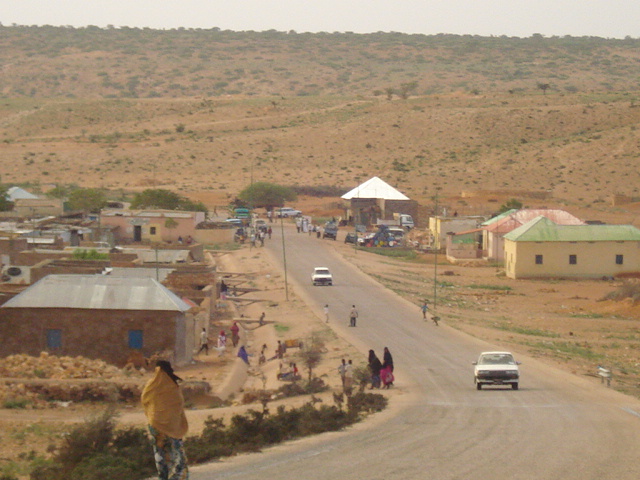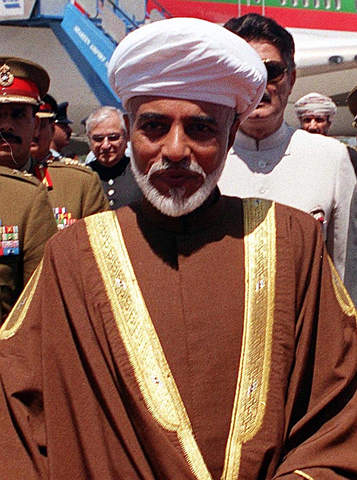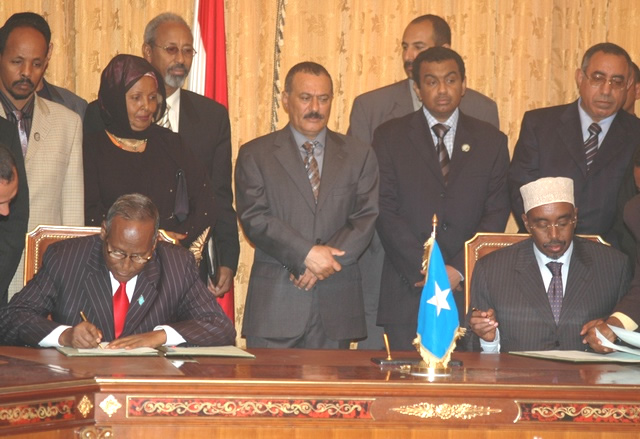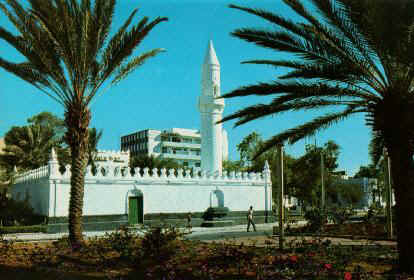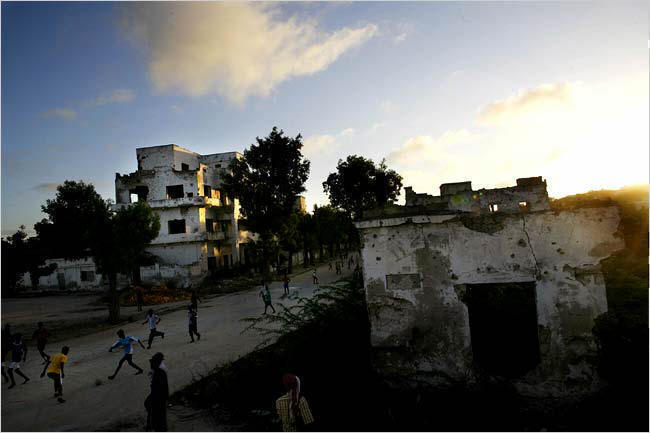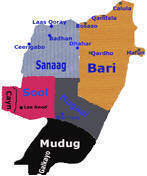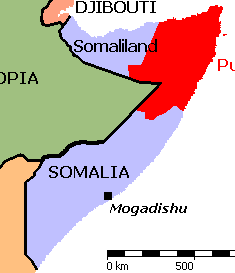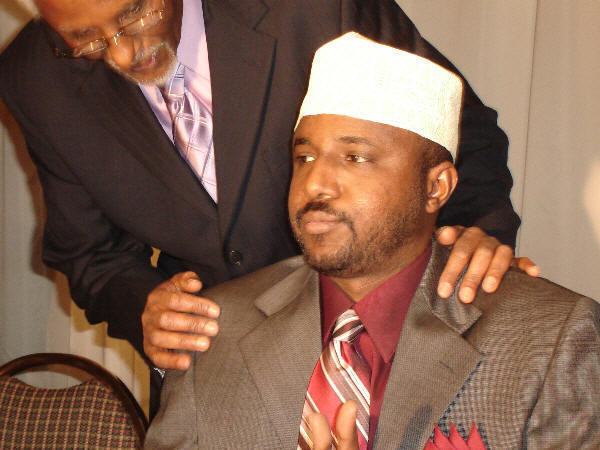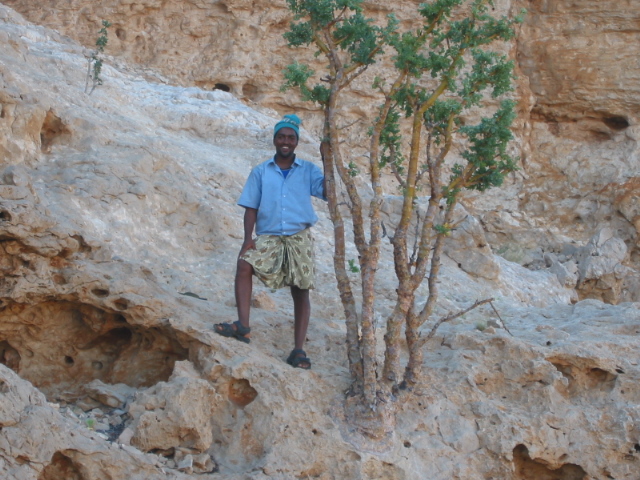|
Islamic Jihad in Yemen`s Khalid Abd-al-Nabi Disassociates Group from Al-Qaeda
Al-Sharq al-Awsat Online
Friday, January 8, 2010

Protesters shout slogans as they march on a street in the southern Yemeni town of Radfan December 19, 2009 to denounce Thursday`s government military operation which the authorities said killed about 30 al Qaeda militants. Yemen said on Thursday that security forces and warplanes had foiled a planned series of suicide bombings by attacking targets including an al Qaeda training centre in the southern province of Abyan and sites in Arhab district near the capital Sanaa. Yemen`s opposition accused the government on Friday of killing dozens of civilians, including whole families, in the raids.
Report by Arafat Madabish, from Sanaa: �Leader of Islamic Jihad in Yemen to Al-Sharq Al-Awsat: Al-Qaeda Is a Coat Hanger, and We Have Nothing to Do with the Bombed�
Khalid Abd-al-Nabi, leading member of the banned Islamic Jihad in Yemen and leader of the organization in Abyan, has criticized the air raid, which the Yemeni authorities announced that they launched against the Al-Qaeda camp in Abyan on Thursday before last, 17 December. However, at the same time he denies any link to the �group� targeted by the bombing.
Abd-al-Nabi accuses the United States of being behind what he calls the �malicious crime.� He says that most of those killed in the bombing were women, children, and elderly. He stresses that this was not the first time such a deed was committed in Yemen on the pretext of Al-Qaeda.
In exclusive statements to Al-Sharq al-Awsat, Abd-al-Nabi says that the Al-Qaeda Organization is �just a name and coat hanger for the committed massacres in order to give justifications before the people, not to mention the distortions and lies fabricated against many people.
Commenting on the security and military cooperation between the Yemeni authorities and the United States, Abd-al-Nabi says that the Yemeni authorities �frankly are not following the right path. It would have been better for the Yemeni forces basically to direct such strikes at the real corruptors who want to sabotage the country and corrupt its people, because when an individual or a group emerges to call for resorting to God`s Shari`ah and to restore people to its path, this is not wrong or a crime.�
In his accusations Abd-al-Nabi is referring to the preemptive strikes addressed by the Yemeni authorities to Al-Qaeda in an air raid on Thursday before last, after which it was announced that 34 leading members of Al-Qaeda were killed, while the Yemeni opposition said that civilians were killed in this raid.
Yemeni Deputy Prime Minister Dr Rashad al-Ulaymi replied to this on Wednesday in parliament, and expressed his regrets that some of the civilians - whom Al-Qaeda Organization brought to the targeted camp to perform cooking and cleaning for their families - fell. Al-Ulaymi stressed that the security organizations have confirmed information about the existence of a camp of Al-Qaeda Organization in Al-Mihfad in Abyan. He confirmed that the state is prepared to compensate the civilians in the light of the conclusions that will be reached by the fact-finding commission formed by the Yemeni president. Al-Ulaymi pointed out that the Al-Qaeda Organization had carried out 61 operations in Yemen since 1992 against installations, embassies, and tourists, which had been costing Yemen annual losses of 144 million dollars.
Abd-al-Nabi denies that he has had any direct or indirect relation to the group which was targeted by the bombing in the Al-Mihfad Governorate. However, he says: �I speak as a Muslim, and these are Muslim brothers of ours against whom the United States has conspired. The Yemeni people ought to understand this.�
In his statements to Al-Sharq al-Awsat, Abd-al-Nabi also denies the existence of any links binding him to the state or to any of its symbols, such as Maj-Gen Ali Muhsin al-Ahmar, President Ali Abdallah Salih`s brother and commander of the First Armored Brigade, as it is circulating in Yemen. Abd-al-Nabi considered this as �rumors� fabricated by �security sources because of their own aims.� He continues: �As for the alliances, there are no alliances. The Prophet, God`s prayer and peace be upon him, says that man is stuck to those whom he loves. Anyone who wants the Prophet to be his leader knows the way, and anyone who follows the example of Bush and Obama knows the ultimate consequences.�
Abd-al-Nabi avoids answering direct questions related to his stance toward Yemeni unity, particularly as many of the symbols of the Islamist tendency in the south, including partisan leaders of the opposition Yemeni Congregation for Reform, have publicly joined the Southern Al-Hirak Movement, which calls for �disengagement between North and South Yemen. However, Abd-al-Nabi says: �What they call now, northern, southern, and secessionist are numerous manifold issues. The fact is that all these issues are Shari`ah violations.�
In reply to a question about the sharpness that characterizes his answers, Abd-al-Nabi says: �We are against racism and pagan calls, because they are against the Shari`ah, and the Shari`ah has come to unite the people, and not to divide the Muslims.� However, at the same time, he added: �In fact the reality on the ground speaks; we have seen nothing from them other than lies and lack of credibility. We have seen nothing of them other than injustice. This has made many sides exploit the sentiments of the citizens in the southern regions, and stir them up against the state in the name of Al-Hirak and secession.� Abd-al-Nabi also considers that the solution is to return to Islam.
Khalid Abd-al-Nabi talks about the Southern Al-Hirak and what the southern arena witnesses. He considers this to be �sedition, chaos, and wrangling.� He also considers the call for �secession� to be due to �injustice, racism, usurping the money of the people, looting the land, oppression, barbarism, use of violence and force, corrupt judiciary, corrupt security, and many other reasons. In fact, if we look at the situation of the people in the southern regions, you might excuse them for demanding secession. This is because the state is the one who gave the sons of the south these excuses when it neglected many things to the extent that they erupted, people took to the streets, with some of the citizens, sons of the people, carrying weapons.�
Despite the above pronouncements, Abd-al-Nabi denies categorically the existence of any contacts between him and former Vice President Ali Salim al-Bayd and other southern opposition leaders abroad. Abd-al-Nabi says to Al-Sharq al-Awsat: �There is nothing whatsoever between these people and us. They are known for their dark history, and their hands are soiled with the blood of the sons of the Yemeni people; their ideas are tarnished and dark, as they are the legacy of the Communist Party. As Muslims we believe that they cannot do anything unless they repent and return to God`s way.�
With regard to his relations with Shaykh Tariq al-Fadli, son of his governorate, and companion of his course, thinking, and struggle, who has become a supporter of Al-Hirak, Abd-al-Nabi stresses that his relations with Al-Fadli are �extremely normal,� and what binds them are �being neighbors� and �being related by marriage.� Abd-al-Nabi considers Al-Fadli`s joining of Al-Hirak as �his opinion and way, as he has chosen this course and considered it the most appropriate.�
As for his relations with Shaykh Abd-al-Majid al-Zindani, Abd-al-Nabi does not reply, and restricts himself to �beseeching God to preserve him� and to saying that �he is one of the best Muslim ulema.�
In an implicit reply to a question about the possibility of his joining Southern Al-Hirak in the future, Abd-al-Nabi says: �No one knows what will happen in the future.� However, he stipulates as a condition: �This should be subject to God`s Shari`ah. We are in favor of anything that is subject to God`s Shari`ah, be it under the name of Al-Hirak or under the name of the state. We are with anyone who is subject to the Shari`ah.� However, he adds that �if the state does not adhere to Shari`ah� we will be with the Southern Al-Hirak �if it is to implement God`s Shari`ah.�
While the apprehension that groups, such as the one led by Khalid Abd-al-Nabi in Ja`ar in Abyan Governorate, might undertake terrorist operations against foreigners and foreign interests, jihadi Abd-al-Nabi replies by saying: �So far, we do not have any activities. However, from what is being published in the official newspapers I sense that there are security elements, or elements that have infiltrated the security organizations that want to drag us into the arena. If they harass us, and if they do not leave us alone as we are busy with the call for God, we will only be defending ourselves whether against the United States or against the Yemeni forces; this is our Shari`ah right.�
Abd-al-Nabi stresses that they currently are dedicated to their call. Abd-al-Nabi denies that he is one of the individuals who appeared on the video clip relayed a few days ago by the satellite channels, threatening in the name of Al-Qaeda the Yemeni Government and the United States. He says: �What has been published by some Yemeni official newspapers is completely untrue, and it is a lie.�
(Description of Source: London Al-Sharq al-Awsat Online in Arabic -- Website of influential London-based pan-Arab Saudi daily; editorial line reflects Saudi official stance. URL: http://www.asharqalawsat.com/)
� Compiled and distributed by NTIS, US Dept. of Commerce. All rights reserved.
Yemeni Sources Cited on Agenda of Upcoming London Conference on Yemen`s Crises
Al-Sharq al-Awsat Online
Friday, January 8, 2010
Unattributed report: �Yemeni Sources to `Al-Sharq al-Awsat`: London Conference Will Discuss Five Thorny Issues. Aden: Officer and Two Soldiers Killed After Young Man Was Killed by Police�
Sanaa, Al-Sharq al-Awsat - �Al-Sharq al-Awsat� has learned from informed Yemeni sources that the London conference on Yemen, which is scheduled to be held at the end of this month, will discuss several important and urgent issues. They added that the most prominent ones are: The dossier of terrorism and growing activities of Al-Qaeda organization in Yemen, the dossier of the �southern movement� and the demands for �disengagement� between the country`s north and south; the dossier of the war in the north between government forces and Huthist insurgents; the dossier of the political crisis between the Yemeni Government and the opposition, and the dossier of the reeling economy and stalled development.
The sources said Britain, the United States, the Gulf countries neighboring Yemen -- which is seeking to join their bloc �the Gulf Cooperation Council (GCC)� -- and other countries would not discuss just some of Yemen`s problems but not the others, thus noting that the conference would not limit its agenda to discussing terrorism in Yemen only and ignore the above issues. It will in addition try to find almost radical solutions for these exacerbating problems that have caused the international community`s concerns, in particular the Iranian interference in Yemen`s affairs by supporting the Huthist insurgents, and to underline the need for direct dialogue with all the Yemeni parties.
The telephone call between Yemeni President Ali Abdallah Salih and British Prime Minister Gordon Brown on Tuesday night which discussed the arrangements for the London conference on Yemen gave the green light to the two countries` foreign ministries to take direct action for holding it during the last week of this month in the British capital so as to discuss the developments in Yemen and in particular terrorism and growing activities of Al-Qaeda organization in the country.
Official Yemeni sources said Yemeni Foreign Minister Abu-Bakr al-Qirbi and British Foreign Secretary David Miliband were given the task �of following up the coordination and discussing the mechanisms that ensure the success of the conference and reaching the desired hopes from it as the personification of the international community`s stand toward the challenges facing Yemen.� Sanaa meanwhile stressed that it would participate in the conference with a �large and high-level delegation.� The 26 September newspaper published by the Yemeni Defense Ministry and which is close to the Yemeni presidency said the conference is expected to be held at the foreign ministers` level with the participation of the foreign ministers of the EU, the United States, the GCC, Japan, Canada, the UN secretary general, and several other countries.
The British prime minister called for holding this international conference on Yemen in London before few days to discuss the critical situation in that country. He did this in coordination with US President Barack Obama. Yemen welcomed this call and underlined the need for the conference to discuss the terrorism dossier besides the development one, three years after the donor countries held a conference in London from which Yemen received billions of dollars from them but observers do not believe that Yemen would get international financial aid without results on �the ground.�
On the other hand, unknown gunmen yesterday killed a security officer and two soldiers in an armed attack on a police station in Al-Burayqah District in Aden, the largest city in the south. �Al-Sharq al-Awsat� learned that the three slain security men were Officer Salih Hawat and soldiers Muhammad Abd-al-Salam and Mazin Abu-Bakr. Three other soldiers were also injured in the attack. Informed sources told �Al-Sharq al-Awsat� that the attack came after a young man called Yunus Bahabib was killed as he was returning home at 0200 hours yesterday after a police patrol stopped him but he was killed by them for unknown reasons. The population of Al-Burayqah, which contains the oil refineries, rebelled after the incident and attacked the police station and several people were killed or wounded. The sources blamed the incident on the activities of the �southern move`s� supporters and the security authorities` suppression of them.
(Description of Source: London Al-Sharq al-Awsat Online in Arabic -- Website of influential London-based pan-Arab Saudi daily; editorial line reflects Saudi official stance. URL: http://www.asharqalawsat.com/)
Compiled and distributed by NTIS, US Dept. of Commerce. All rights reserved.
Is Al Qaeda in Yemen connected to Al Qaeda in Somalia?
Scott Baldauf
The Christian Science Monitor
January 07, 2010
In the wake of the Christmas Day Northwest airlines bombing attempt, some are wondering if the Al Qaeda branches in Yemen and Somalia are linked. Most experts don`t see evidence of coordination - not yet.
Yemen and Somalia are separated geographically by the Gulf of Aden, which at its narrowest point, is just 100 miles across - about the same distance as Miami is from Cuba. The ethnic, cultural, and linguistic gap between the two nations is much wider. Still, both are poor, internally riven nations battling Islamist insurgencies. In the wake of the Christmas Day Northwest airlines bombing attempt, some observers are wondering if the Al Qaeda branch in Yemen might be connected to the Al Qaeda sympathizers in Somalia. Regional exerts say there is little if any concrete evidence of abroad, coordinated terrorist campaign in both countries. But it could happen. �The linkage is that you have elements in both countries with the same jihadist and extremist ideology,� says Ted Dagne, a Horn of Africa expert and senior researcher at the Congressional Research Service in Washington.
�The geographic proximity allows these extremists to sustain themselves and coordinate their efforts. �The potential for linkage may shape the way the Obama administration moves to beef up support for the Yemeni government`s efforts tore in radical Islamists. Secretary of State Hillary Clinton announced yesterday that US efforts would focus as much on development as on military support. But experts say it`s clear that solutions in Yemen and Somalia will largely have to come from greater leadership and vision within those countries. �The similarity between Yemen and Somalia is that they are tribal societies, they have conservative social norms, and they have both had weak states unable to provide services to the people,� says one Horn of Africa expert, speaking on condition of anonymity. �Al Qaeda embeds itself into conflict societies. They build ties with tribal elders. They build schools. They provide social services, like Hamas [the Palestinian militant group] does. They buy loyalty, they get legitimacy, and once clans make friends with someone like this, you don`t give them up. Getting them out will be like finding a needle in a haystack. �Somalia`s Al Qaeda connection As in Yemen, Al Qaeda fighters have begun arriving in Somalia to carry out a war against a state that is seen by Islamists to be imposed on that society by the West. Security experts say some 200 foreign jihadists have arrived from Pakistan, Afghanistan, Yemen, Saudi Arabia, India, and even the US, who serve as military trainers and experts in explosives. Many Islamists flocked to Somalia to help fight the Ethiopian Army, which invaded Somalia in Dec. 2006 to oust the Islamic Courts Union government. Now these foreign jihadis are staying on to transform the narrow nationalist fight into a global jihad, and their harder ideology is seen in a rash of recent suicide bomb attacks on African Union peacekeepers and even a university graduation ceremony on Dec. 3 in Mogadishu. Experts say this is a sign that foreign jihadis have taken over leadership of Somalia`s largest Islamist militia, Al Shabab. Both Somalia and Yemen have suffered punishing civil wars, and Somalia has gone nearly a generation without a functioning government. Decades of infighting by clan leaders and warlords have created a burgeoning arms trade, smuggled to and from Yemen. Yemen now has the largest number of Somali refugees in the region, many of them young, battle-hardened men looking for jobs abroad. Feeling duped by clan elders, many Somalis turn toward religious leaders preaching unity through the one institution - Islam - that all Somalis share in common. Yet despite all these common factors, the conflicts in Somalia and Yemen seem to be largely separate, and there is little evidence that they are coordinated by some larger Al Qaeda entity. �Shabab has only recently turned to Al Qaeda, and then it was only from the East Africa cell of Al Qaeda, not from Yemen,� says another expert on Somalia, who also spoke on background. An Al Shabab connection? While there is the potential for these two conflicts to become �increasingly intertwined,� as Shabab senior commander Muqtar Robow claimed recently Somali Shabab fighters were leaving to help Islamists fight the government in Yemen, this expert says that this may be simply rhetoric. �Shabab has its own major conflict looming with Somalia`s Transitional Federal Government,� as the current Western- backed Somali government in Mogadishu is called, he says. Thousands of Somali Army soldiers have now completed training in Kenya, Djibouti, and Ethiopia, and will be returning over the next month to Mogadishu. There are rumors that the government will put these soldiers to immediate use, and attempt to expel Al Shabab from portions of its territory across the south. �This is one of the preconditions for extending the mandate of the transitional government,� says the expert. �They need to demonstrate that they can protect themselves and protect the Somali people. �Yet as successive US administrations sending troops to Afghanistan have concluded, military might is only part of the solution. People living in neglected regions turn to those who offer support and keep their promises, and if Al Qaeda or its allied Islamist militias can show that they will bring development and security to the regions under their control, Somali or Yemeni citizens will be reluctant to kick them out. The likely solution, experts say, is for Al Qaeda extremists to wear out their welcome, after carrying out one too many suicide bombings and killing too many innocent Somali bystanders. Until then, the West needs to be more flexible in choosing its friends, and be willing to work with those Islamists it once feared, but who share a revulsion to the destructive ideology of Al Qaeda. �There is the perception or assumption that just because people come from Muslim countries, they are extremists,� says Mr. Dagne. �Islam is not the enemy. The ideology of extremism is the enemy. Those Somali leaders wrongly labeled as extremist and Jihadists are the ones fighting the real terrorists.�
� 2010 Christian Science Monitor. All Rights Reserved.
|


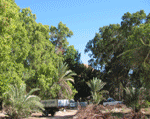


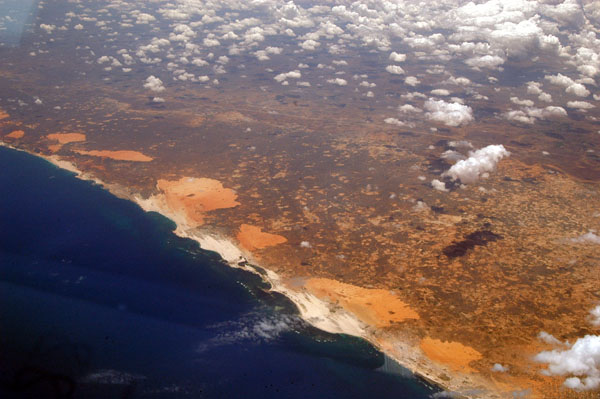
.jpg)
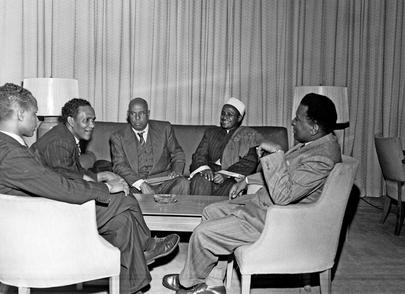
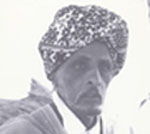



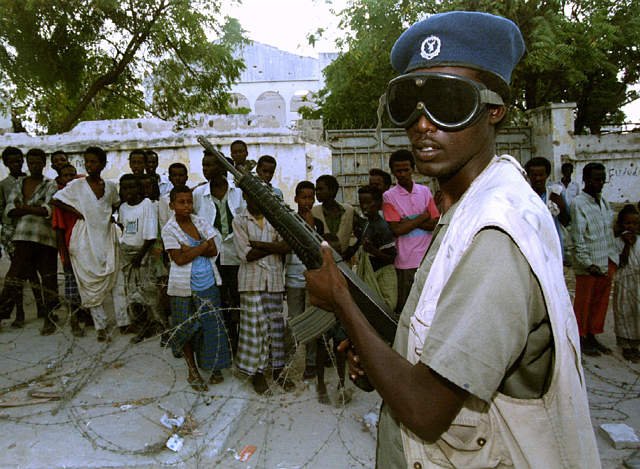




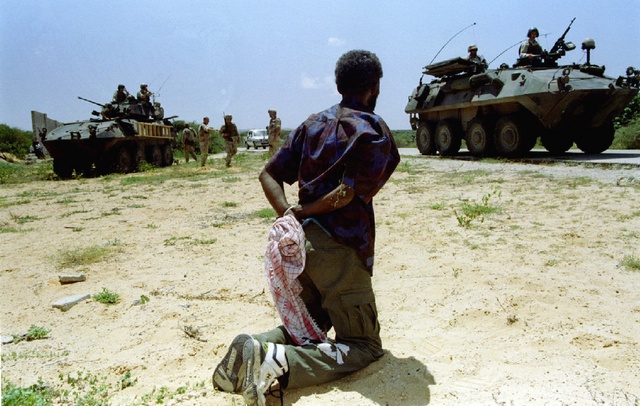
.jpg)




